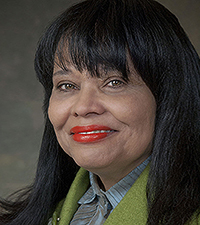
ABOVE PHOTO: Shutterstock

Linda Wallace
By Linda Wallace
As 2017 unfolds, the time has come for all Americans to confront two of the scariest words on the planet: cultural audit.
Cultural audits are mental exercises that enable individuals to identify and manage hidden biases and challenge their automatic assumptions. They enable us to determine whether we hold all cultural groups to the same standards, or we cheat, offering a break to the folks who look like us and share our beliefs.
Most of us cheat sometimes, but our cultural shades hide this fact from us. So we give ourselves higher scores for fairness than we truly deserve.
Americans must learn how to view themselves through the eyes of allies and enemies. This skill, known as cultural flexibility, gives us the power to be highly respected and influential players. Try to respond to the following statements and questions honestly.
Cultural yardsticks
(Answer: Always, Often, Never)
- I examine the strengths and weaknesses of all ethnic, racial, age, gender or religious groups and do not target those that differ from me.
- I hold organizations or cultural groups I support to the same high standards as organizations and groups I oppose.
- I audit my reactions to people who look different to ensure that I promote fairness and equality.
- When I find myself jumping to a conclusion, I pause to examine whether my biases are driving my thinking.
- I can listen to opposing views without seeking to discount them.
Intercultural relationships
(Answer: Yes or No)
- If you had the need to hire an employee, would you select the applicant you feel is likely to challenge you to grow?
- When faced with an instance of racism, sexism or bigotry, did you play gotcha or lead by example?
- Did you make a second effort to try to understand the feelings and beliefs of those who fear or hate?
- Did you place yourself in situations where you were obviously a minority by age, religion, ethnicity, gender or race? If so, did you learn or gain something from this experience?
- Are you able to see clearly the faults and weaknesses of people who look like you?
- When you select professional consultants or doctors, do they tend to be of the same race or religion?
- Are you more likely to believe a person who is of your race, culture or geographic location? Do you ever distrust people because of where they are from (South side of Chicago, Middle East, etc.)
Cultural literacy
(Answers: Always, Often, Never)
- I read articles and listen to programs that reflect the perspectives of other races, ethnicities, ages and religions.
- I am aware of the stereotypes I hold of different racial, religious, age and ethnic groups.
- I can identify how those stereotypes affect the way I view and treat people.
- I am able to manage those stereotypes so that they do not prevent me from seeing other options or better strategies.
- I am as likely to believe information provided by a member of another social or cultural group as I am to believe information provided by someone who is of my age, religion, race, gender or ethnicity.
- I am as likely to challenge information provided by a member of my own group as I am to challenge information provided by someone who does not share my own background.
- I get all my news from the same station.
- I only watch or follow American media.
Culturally competent communication
(Answer: Yes or No)
- When called upon, I am able to explain and understand the views and opinions of other cultural groups.
- I am able to provide a wide range of perspectives on controversial issues.
- I seldom engage in verbal attacks, name-calling or other tactics that shut down crucial conversations.
- I draw upon the experiences of my listeners in developing statements or arguments.
If you most frequently answered “yes” or “always,” then pat yourself on the back. If you didn’t, there is always next year. Cultural audits are designed to help us identify our weak spots.
Share the areas that you intend to work on with a close friend. Report back to him or her throughout the year on your progress.

















Leave a Comment